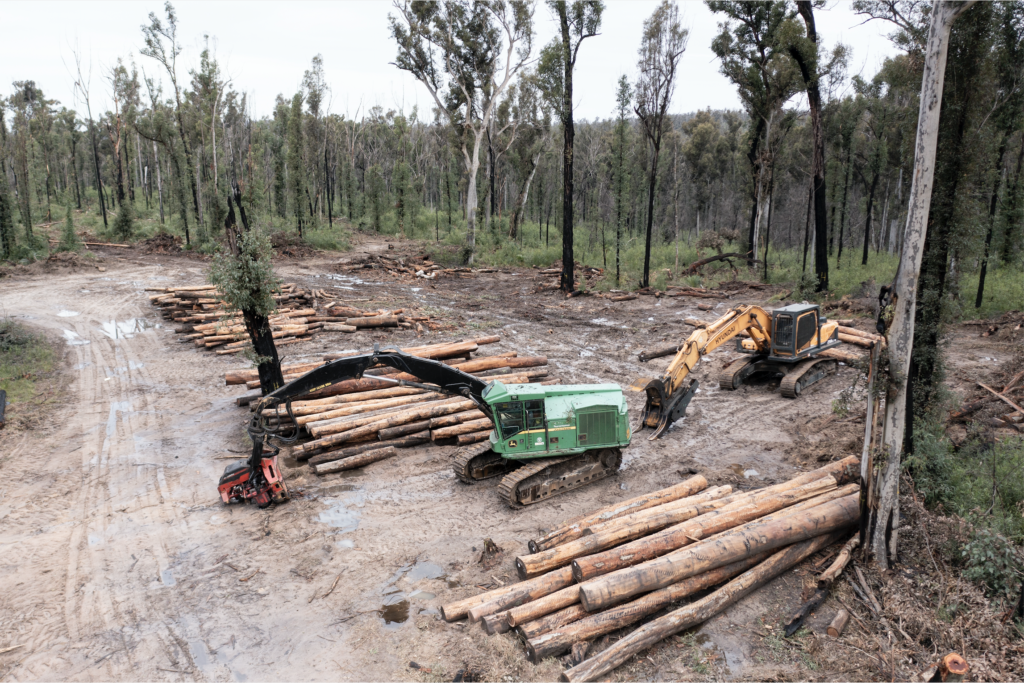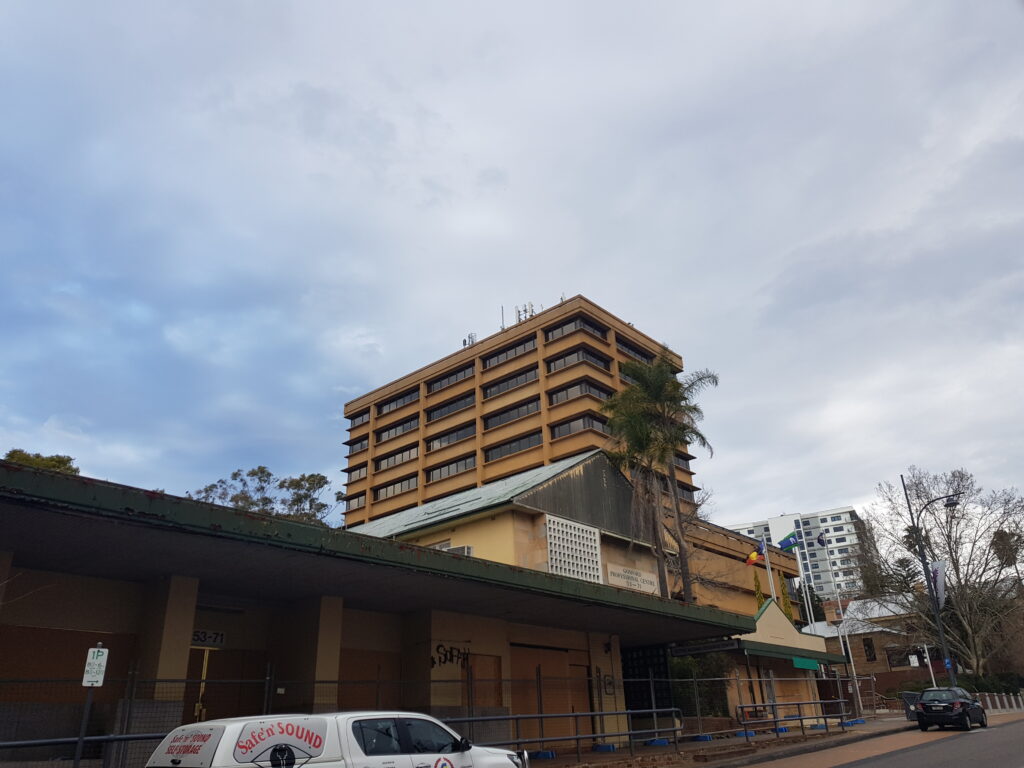The Victorian state government’s decision to end native forest logging earlier than expected has angered forestry industry proponents, elated environmentalists and raised expectations for the same decision to be made by other states.

The Victorian National Parks Association (VNPA) has welcomed the announcement of the State Government’s decision to bring forward the end of native forest logging to January 2024.
The end date will be accelerated from 2030 to the start of next year through the additional $200 million of measures announced in the State Budget on Tuesday, 23 May.
“After decades of campaigning to protect Victoria’s native forests from state-funded native forest logging, we’re elated to hear the Victorian Government show leadership on this issue,” VNPA Executive Director, Matt Ruchel said.
“This is a great step forward for all the groups and community folk who spent so long working to protect these incredible habitats, wildlife and special places,” Ruchel said.
“The news that the end of native forest logging in our state is to be brought forward is critical for the current and future health of our natural world, and the security of workers and community.
“We’re keen to see the detail and better understand how these forests will be managed and protected into the future, and welcome the commitment for a full assessment of forest suitable for new national parks.
“We also hope this will clear the way for the previously promised national parks in the central west to be established as soon as possible”.
VicForests has been under pressure over the logging of native forests following the devastating black summer bushfires in 2019-20, and after being found via community court cases to have broken the laws in three cases, over failing to protect endangered wildlife like the iconic Greater Glider.
VicForests made a loss of $54.2 million in 2022 despite receiving government handouts.
VNPA support assistance for forestry workers and the ongoing health of Victoria’s remaining native forests, but are keen to see the detail of what is planned for forest management works announced in the government package, which will allow workers to continue to work in the forests and contribute to bushfire risk reduction.
Friends of the Earth Melbourne applauded the Andrews Government’s announcement that the end of Native forest logging was to be brought forward to January 2024, with $200m allocated to assist forestry workers and their communities with the transition.
After decades of community campaigning, finally Victoria’s native forests will be safe from woodchipping and clear felling.
“This is a huge moment for everyone who has worked tirelessly to end logging and bring forward this transition date,” said Friends of the Earth forest campaigner Alana Mountain. “It’s what we have needed for decades; to protect remaining carbon sinks, biodiversity, water catchments and First Nations culture. This is a sensible move to wind up the timber industry and transition affected workers. This is justice for climate, forests, and humanity.”
“We just protected one of the world’s largest carbon sinks in this state, a globally significant area for climate mitigation,” said Alana.
“This is an outcome achieved by various environmental groups and the grassroots community with court cases, relentless citizen science efforts, lobbying of decision makers, forest tours and of course a long blockading legacy.
“It’s vital that the government continues to support affected communities and we welcome the announcement of an additional $200 million to support workers and their families as they exit the industry.
“Right now is a sensitive time for affected workers, but with the clarity this announcement provides, people are no longer in limbo. It’s an opportunity for communities to come together, develop a collective vision for their local economy, and create ongoing jobs that are rooted in regenerative land stewardship, climate resilience, and caring for one another.
“We thank the new environment minister Ingrid Stitt for showing leadership and finally listening to what communities that have been calling for a long time. Transitioning earlier is in line with the ecological and climate realities we’re facing and it also makes it possible for communities to transition with dignity and embrace the opportunity to create a long-term future beyond logging.”
Meanwhile, Jacqui Mumford, CEO of the NSW Nature Conservation Council reminded the public that, after a decade of community pressure, the new Labor government committed to establishing the Great Koala National Park (GKNP).
“The GKNP was developed by leading scientists, ecologists and local environmental groups, including the National Parks Association, who identified the most important areas of koala habitat in NSW. All of these areas need to be protected if we are to ensure the survival of koalas in the wild,” Mumford said.
“But analysis undertaken by our team has found that 17.7% of native state forest that constitutes the Great Koala National Park will be targeted for logging by Forestry Corporation NSW over the next 12 months.
“Forestry Corp knows this national park is coming, and are deliberately ramping up operations within its boundaries to extract as much timber from the proposed park as possible.
“Our analysis also found they are planning to log some of the most important areas of koala habitat in NSW (Koala Hubs),including Wild Cattle Creek, Clouds Creek, Pine Creek and Boambee State Forests.
“What chance do koalas have if the area that was supposed to be their sanctuary is given the green light for logging? How does logging their homes before making it a national park make any sense?
“That’s why we’ll be in the media and on the ground, calling for an immediate halt to logging in areas that will become the Great Koala National Park.
“Logging needs to stop in all of NSW’s state forests. But if we want to protect koalas we need to protect these areas of critical significance.
“The good news is that the economics is on our side. Analysis by NCC has also found that in the 20-22 financial years the government subsidised Forestry Corporation NSW to the tune of $29 million, while logging forest that falls within the proposed Great Koala National Park cost the NSW taxpayer $5 million.
“It seems absurd to have to say it, but taxpayer dollars should not be spent killing koalas.
“We know this message resonates with the majority of people in NSW. With enough pressure, we believe we can ensure the new NSW Government steps up and to stop the destruction of koala habitat.”
The Australia Institute is calling on the Tasmanian Government to follow Victoria and end native forest logging from 2024.
The Australia Institute Tasmania Director Eloise Carr said Victoria’s decision to bring forward its native logging ban from 2030 was well overdue, and urged Tasmanian Premier Jeremy Rockliff to end the economically and environmentally unsustainable industry.
“Tasmania has been handed a golden opportunity to protect its native forests by closing the curtain on this economically and environmentally unsustainable industry,” Ms Carr said.
“Australia Institute research over many years has highlighted the financial and economic losses of native forestry. The sector is a relatively small employer, heavily subsidised by the taxpayer and it causes climate change and habitat loss.”
Logging reduces carbon storage, threatens native species and increases fire hazard as Australia heads into another El Nino, which brings renewed bushfire risk after years of heavy rain.
“The end of native forest logging is long overdue and Tasmania’s environment cannot afford the State Government delaying the inevitable end of an industry well past its use-by date,” Ms Carr said.
“With Victoria today bringing forward its native forest logging ban to 2024, Tasmania and NSW are the only states dragging the chain,” Ms Carr said.
“If the Tasmanian Government ended native forest logging it would not just good environmental policy but good economic policy.”


